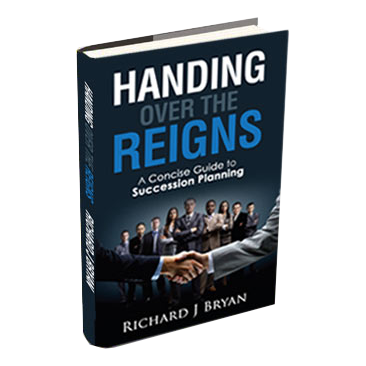In times of crisis, employees look to their leaders for reassurance as well as inspiration. They want to know that the company they work for is going to survive the current challenges—and hopefully, one day thrive—in a post-pandemic economy.
We have never before seen the global economy hit “pause” in this way. An unprecedented number of people have been furloughed or laid off; those who are fortunate enough to still be employed are likely working from home, where they may also be juggling the myriad responsibilities of parenting and running a household. This presents a special set of challenges to leaders, whose strategic plans and annual budgets have suddenly been tossed out the window.
Although I have not experienced anything like the COVID-19 crisis, I did have to contend with the turnaround of my family business early in my leadership career. And today, as a business turnaround keynote speaker, the questions my clients face are incredibly pertinent to today’s situation: how does one pivot so that they can emerge from this crisis with a workforce that has the skills and capabilities to grow once we enter a recovery economy? And perhaps more importantly: how can they, as leaders, leverage new adaptations so that they too can grow?
Today, we must all become business turnaround experts.
In my own family business turnaround, there were a lot of similarities to the current state of affairs—then, as now, we needed to preserve cash, hold on to key employees and remain positive in a crisis. In addition, it’s a tough transition from being in senior management to suddenly being the CEO and ultimate decision maker. This is a stressful place to be if you have not been there before and—as I did—lack the necessary experience.
In her insightful 2018 article for Harvard Business Review, leadership expert Cassandra Frangos talks about the “leap into leadership,” describing how 50–60% of new leaders in large-cap companies fail within their first 18 months. I made lots of mistakes, and was certainly on track to support that statistic. Thankfully, though, I realized I needed help—and hired a seasoned troubleshooter and business turnaround expert to work with me. This proved to be the difference-maker, giving me the perspective and confidence I needed to make key decisions quickly.
Is your ego stopping you from seeking inspiration in transition?
Often, I think the ego of the leader in a privately-owned company or family-owned business gets in the way and stops them from asking for help—even when they are facing a crisis that could make or break their company. I call this the “Hero Syndrome”: when the leader thinks that nobody can do it better than they can. This is also what prevents many seasoned leaders from planning for a succession to the next leader who will take the business forward. This is more pertinent now than ever before, as leaders grapple with how to pivot in order to survive and then thrive, post COVID-19.
How can you position your company to survive—and ultimately thrive?
As an example, I own a commercial real estate investment company in the UK. With what we are experiencing now, there are many companies who are surprised by how effective their employees can be when working from home. I know a London-based law firm where a partner recently told me that their productivity in March and April had significantly increased because their fee-earning lawyers were not having to commute for up to three hours a day.
As a result, these companies are now considering reducing the amount of office space they rent in central London. This example suggests that demand for office space could reduce across many major cities—a pivot that could have a dramatic impact on my business. On the flip-side, the market for industrial units and warehouses is likely to increase as the new virtual economy demands more home deliveries. So how, as a business owner and CEO, does one position their company in the right sectors for the future—and can one get out in front of this demand?
What will you learn from this—and what will you take forward?
The “pinnacle paradox” Frangos mentions in her article is also very relevant now. CEOs are under huge pressure at the moment, and some may burn out or decide they want to strive for better work/life balance following an extended period of time working from home.
We are in a fast-evolving business environment—who would have ever thought we’d see negative oil prices due to lack of demand?
Only the most nimble and creative leaders will survive. This, then, may be the perfect time to accelerate your company’s succession plan and bring the next generation to the forefront! The key is to make sure that they have ample support during this transition—such as a mentor, coach or trusted advisor who helps them to shoulder some of the emotional burden of stepping into a key role.
To quote Frangos, “The capacity for reinvention is the single most important career attribute for executives today.” Succession planning has never been so important for privately held companies and family-owned businesses as it is now. I just hope they realize it before it’s too late.
Here’s to Your Business Success!
Richard J. Bryan
Related Topics:
Business Contingency Planning: What, Why + How


